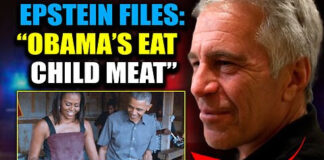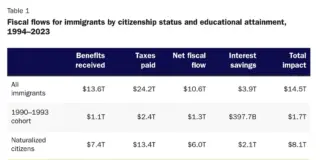The story of a California girl and her goat named Cedar, which captured national and international headlines this past week, almost reads like it could have been penned by a Hollywood screenwriter. The tale of a child battling cruel adults for the life of a beloved animal companion has been the plot of everything from a classic children’s story (Charlotte’s Web), sci-fi film (2017’s Okja), and even an episode of The Simpsons (“Apocalypse Cow”).
The tale begins in the experience of millions of children who enroll annually in their local 4-H clubs — a more than century-old national youth organization run by the US Department of Agriculture that teaches personal development skills through agricultural and home economics projects. Last year, the 9-year-old daughter of Jessica Long, a resident of Shasta County in northern California, acquired a baby goat for a 4-H “livestock project.” The idea was that she would raise the goat until he was ready to be auctioned for slaughter at the local county fair, a common activity for 4-H members.
But raising Cedar led Long’s daughter to care deeply for him and, on the eve of the auction last June, she pleaded for the goat to be spared. The fair organizers refused. Then, Republican state Sen. Brian Dahle, a farmer and unsuccessful 2022 California gubernatorial candidate, submitted a winning bid of $902 for Cedar’s meat, of which $63.14 was to go to the fair. Later that night, in a last-ditch effort to save Cedar the goat from slaughter, Long and her daughter took him from the fair.
But that’s when the plot took a dark turn no Hollywood studio would greenlight. The Shasta District Fair claimed Long had stolen Cedar, demanded she surrender the goat for butchering, and threatened to involve the police if she did not. Long refused. That’s when the Shasta County Sheriff’s Office got involved. Armed with a search warrant, officers drove more than 500 miles across northern California, seized Cedar from the Sonoma County property where he had been taken, and returned him to Shasta County, where he was slaughtered. Long is now suing county officials for violating her daughter’s civil rights.
Cedar’s case might seem like an isolated if viral news story. The lawsuit was filed last August to limited media attention, but in the wake of a story first published in the Sacramento Bee on March 29 and subsequent viral Twitter posts, it has been covered everywhere from the Los Angeles Times to the Washington Post and CNN, among others. But the whole affair reflects a bigger point about how programs like 4-H, the largest youth organization in the country, train generations of children to act against their better moral judgments. Implicit in 4-H’s livestock projects is the view that farm animals are fungible commodities with one correct use — food — a belief that also undergirds the politics of meat in America. Put simply, it takes quite a bit of hard work to convince people to treat animals as nothing but meat, but hundreds of billions of dollars a year depend on it.
One goat versus the multibillion-dollar meat industry
The police who seized Cedar on behalf of the fair association were working in a political context shaped by agricultural interests. The action reflects a common pattern of law enforcement overreach in service of the meat industry that’s also evident in, for example, the FBI’s raids on farm sanctuaries in pursuit of animals rescued by activists from factory farms.
In this case, Long’s lawsuit argues, she was accused of a theft she couldn’t possibly have committed since her daughter was still the legal owner of the animal when she removed him from the fair and, as a minor, she had the right under California law to disaffirm any contract she’d made to sell him. The suit also claims that the police committed a number of errors in their seizure of Cedar, including the use of a criminal search warrant in a case she argues was civil, and then not following the California requirement to hold onto evidence — which, in this case, would have meant keeping Cedar alive. The defendants named in the case — including the county, three Shasta police officers, the Shasta District Fair and Event Center, the fair’s CEO, and another person affiliated with the fair — denied most of the allegations in a formal response to the suit.
Shasta County, which sprawls along the foothills of California’s Cascade mountains, is a relatively rural, sparsely populated, and poor county by state standards. While only 1 percent of its workforce is employed directly in agriculture, it is politically dominated by the Republican Party, which has thick state and national relationships to farming interests and claims farmers and ranchers as an important constituency. California may be better known for Hollywood and Silicon Valley, but the state is also the nation’s top agricultural and dairy producer, and farming has been a major force in its economic development. Especially in the deep red counties of the Central Valley and far north, farm interests still pack an outsized political punch in this otherwise Democratic-dominated state.
At the same time, California’s mostly urban and suburban populace has become increasingly critical of agriculture’s impacts, especially around the treatment of animals. In 2018, 62.7 percent of California voters passed a proposition to strengthen the state’s animal welfare standards, a measure that is now being challenged by the pork industry before the US Supreme Court. But in many rural counties, the agricultural lobby and culture are still strong, with local elites boosting programs that bear the imprint of rural identity, such as 4-H and FFA (what used to be called Future Farmers of America).
What happened to Cedar, which struck so many readers as absurd and out of proportion, shines a light on the ideology of 4-H. One of us (Gabriel) has written a book about the organization’s importance in American history. In its initial years, 4-H aimed to teach rural youth how to be successful farmers and homemakers. Enrolled youth focused on producing an outstanding agricultural or domestic economy product to competitively exhibit at the county fair: an egg-laying chicken, a home-sewn dress, a plump tomato, a jar of preserved berries, or a fattened calf, for example. Livestock projects like the one Long’s daughter took on, in which children care for a farm animal in preparation for auction and slaughter, date back to the organization’s founding, though today 4-H’s curriculum also spans things like computer science and photography, more recent additions intended to broaden the organization’s appeal to urban and suburban youth without farm experience.
Many Americans might assume 4-H represents an organic expression of rural civic pride, but its history is deeply interwoven with the leviathan of federal power, particularly the US Department of Agriculture’s efforts to cultivate capital-intensive, debt-financed agriculture across large swaths of rural America. Since 4-H’s founding, the USDA has indirectly administered the program through a network of local agents, and it still legally owns the 4-H name and its iconic clover emblem. (A 1939 law, which wasn’t repealed until December 2020, makes the misuse of the 4-H name or emblem a federal crime.)
:no_upscale()/cdn.vox-cdn.com/uploads/chorus_asset/file/24562496/GettyImages_1404493264.jpg)
Training rural youth to think about animals as products has been a central part of 4-H livestock projects. County fair associations, the quasi-governmental organizations that run the fair and manage the fairgrounds, frequently function as pass-throughs for the civic investments of large businesses and wealthy farmers. Historically, those players supported fair associations and 4-H clubs, donating livestock and small, interest-free, non-collateralized loans for feed and other supplies — similar to what is now termed “microfinance” in international economic development literature. They then purchased back the matured animals at county and state auctions, usually well above market value (Dahle bid $902 for Cedar, compared to an estimated market rate for goats of roughly $300 or less) to stoke enthusiasm about the livestock business among the community’s youth.
But today, such livestock projects sit in an uneasy relationship to a meat industry defined by inhuman scale, speed, and brutality. Sociologists Colter Ellis and Leslie Irvine have argued that 4-H’s livestock projects implicitly teach young people how to manage the emotional dissonance that can result from sending a beloved companion animal to a grisly fate. The program’s cognitive and emotional socialization is consistent with broader strategies deployed in animal agriculture to justify what many workers may experience as the disturbing and even traumatic labor of slaughter, Ellis contends. Livestock projects systematically undercut and confound the basic moral intuitions youthful participants like Long’s daughter start with, teaching them that it’s natural and right to lovingly care for an animal companion and then slaughter it and sell it as meat for a tidy profit.
Livestock production teaches kids mercilessness
Learning that lesson is key to participating in commercial livestock farming at any scale, whether on a local or factory farm, since the grinding imperatives of long-term profit and contractual obligation must ultimately trump childish sentimentalism for small and large farmers alike. The cultural code in farm communities dictates that children must behave as though animals are commodities and avoid challenging social norms shaped by agriculture or be prepared to be treated as pariahs. As Long’s lawsuit notes, she and her daughter “feared that deviation from a 4-H program through resisting the slaughter of livestock would upset other 4-H members and community members.”
This is why the child’s defiance was so threatening to the fair, its agents, and, by extension, the American agricultural system, and why it was met with the full force of the law. By suggesting that animals may deserve mercy and that the people who raise them might not want them killed, the family broke a social contract, a rupture that is apparent in Long’s correspondence with county fair officials. Sending Cedar to slaughter was “to teach our youth responsibility” and was “unfortunately out of my hands,” Shasta Fair Association CEO Melanie Silva told Long in an email. There was no opt-out clause, no room for individual conscience or moral judgment.
That’s a feature of 4-H’s livestock projects, not a bug. Farm animals are to be treated as abstract and fungible, as indistinguishable from one another as one cellophane-wrapped steak is from the next. If an exception is made to spare one animal’s life, the whole ideology is undermined.
Philosopher Cora Diamond, in her writing about what could sway humans to treat animals better, has noted that mercy is the quality of recognizing the suffering of one over whom we wield power and choosing to treat them with compassion. To make mercilessness into a virtue, as such programs inherently do, propels violence against the vulnerable, whether animal or human, but it also strips people of what Diamond sees as our human moral capacity. Mercy emerges not because we are bound by some abstract inhuman rule, but the opposite — because we are exposed to the particular suffering of a creature in our power and moved by our consciences to spare them, as Long’s daughter was.
Perhaps the county’s brutal response to a single girl’s act of mercy came in part because she reminded the adults around her that they were not metaphysically bound to cruelty to animals; they could choose mercy, but chose not to. One child’s torch-bright act of conscience illuminated the willingness of adults around her to substitute the brittle formalisms of market logic, economic exchange, and contract for the operation of ethical reflection, a kind of moral torpor without which modern animal agriculture would be impossible.
For 4-H, the slaughter of Cedar has created bad publicity that could well spark an identity crisis. In response to declining rural populations, 4-H has worked hard to renew its relevance through projects aimed at urban and suburban children that appeal to liberal sensibilities about sustainability and food ethics, as journalists Kiera Butler and Sarah McColl have both observed. Those sensibilities are increasingly difficult to square with the program’s deep ties to animal agriculture, a tension more regularly evident in teary-eyed children forced to give up their animals for slaughter than in police raids.
A girl and her 4-H goat paint a picture of farming and food that is a far cry from the ceaseless brutality of the industrial abattoir. In death, Cedar may well remind parents that as long as 4-H teaches children to treat animals as commodities, the slaughterhouse will always be the final destination. The mercilessness of the meat industry may, at any moment, barge into their pastoral scene, sirens blaring, search warrants in hand, to execute a contract and a beloved animal alike.
Gabriel N. Rosenberg is the associate professor of gender, sexuality, and feminist studies and history at Duke University. His first book, The 4-H Harvest (University of Pennsylvania Press, 2016), explores the history of the United States Department of Agriculture’s iconic rural youth organization.
Jan Dutkiewicz is a visiting fellow at Harvard Law School. He has published widely about the environmental, public health, and legal aspects of food production in academic journals and publications including Vox, the Guardian, Wired, and the New Republic.
From vox.com
Disclaimer: We at Prepare for Change (PFC) bring you information that is not offered by the mainstream news, and therefore may seem controversial. The opinions, views, statements, and/or information we present are not necessarily promoted, endorsed, espoused, or agreed to by Prepare for Change, its leadership Council, members, those who work with PFC, or those who read its content. However, they are hopefully provocative. Please use discernment! Use logical thinking, your own intuition and your own connection with Source, Spirit and Natural Laws to help you determine what is true and what is not. By sharing information and seeding dialogue, it is our goal to raise consciousness and awareness of higher truths to free us from enslavement of the matrix in this material realm.
 EN
EN FR
FR



























What needs to be addressed here & emphasized is "Corporate Farming" that is the problem. Its over production & practices is unnecessary. It feeds an industry we can all do without, namely the "Fast Food" industry. That way we also get rid of the need for so many Land Fills.
What a 'sicko world' we are starting to slide into? If a girl wants to trans into a boy or vice-versa that is A-OK. the authorities will protect you to do that, but if you are a little Girl or Boy and wants to keep your animal that you LOVE, in this case a Goat, that is unlawful and the authorities will take that PET you love and slaughter it! What a horrors
filled place we have created?
I do wonder if this whole thing wasn't specifically the result of a lack of commitment from some kind of rural newbies, and maybe as a whole, a popularist setup …. complete with commentary from the 'educated' ones from Duke and Harvard. Such an opportunity, perhaps, lost for important life lessons learned.
I'm guessing they won't be doing that again…
or maybe, by design, it is just the beginning?
I'm also going to guess that the only ones not fully comprehending where their real food comes from
is most likely coming from the areas around populist areas, cities and large towns….
the ones living here are probably not living under any Pollyana like illusions.
Try to imagine what it's like, when anybody says in any way, shape or form, "The chickens, goats, and others are and ought to be only food. Anyone who says, that being food isn't and shouldn't have to be the only purpose of such animals is a mentally ill idiot who should be unemployable and unhousable for life."
That utterance sounds like borderline personality disorder.
Senator Dahle, the 4-H fair organizers, the county officials and policemen, the lawsuit defendants, may be despising and hating Jessica Long and her daughter, for what the daughter wanted to do regarding Cedar, too much for their own good.
— Elfriede Lentner, https://www.deviantart.com/puretassel